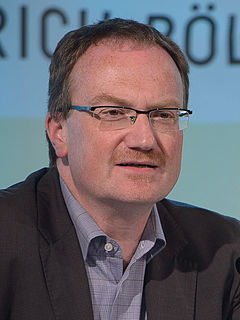A Quote by Nicholas Stern
Unfortunately, the current pace of progress is not nearly rapid enough, with many rich industrialised countries being slow to make the transition to cleaner and more efficient forms of economic growth.
Related Quotes
The main issue [of the Scientific Revolution] is that the people in the industrialised countries are getting richer, and those in the non-industrialised countries are at best standing still: so the gap between the industrialised countries and the rest is widening every day. On the world scale this is the gap between the rich and the poor.
Inflation is certainly low and stable and, measured in unemployment and labour-market slack, the economy has made a lot of progress. The pace of growth is disappointingly slow, mostly because productivity growth has been very slow, which is not really something amenable to monetary policy. It comes from changes in technology, changes in worker skills and a variety of other things, but not monetary policy, in particular.
Change is more often a rapid transition between two stable states than a continuous transformation at slow and steady rates. . . .Change occurs in large leaps following a slow accumulation of stress that a system resists until it reaches the breaking point. Heat water, and it eventually boils. Oppress the workers more and more and bring on the revolution.
I am very pleased with the progress of the new CBS Corporation. The Company's rapid pace of change and innovative approach to emerging business opportunities can be seen in the many strategic announcements we have made over these past few months. The more focused and more nimble organization we sought to create has become a reality and that aggressive spirit of excellence and innovation will continue to benefit shareholders for many years to come.





































